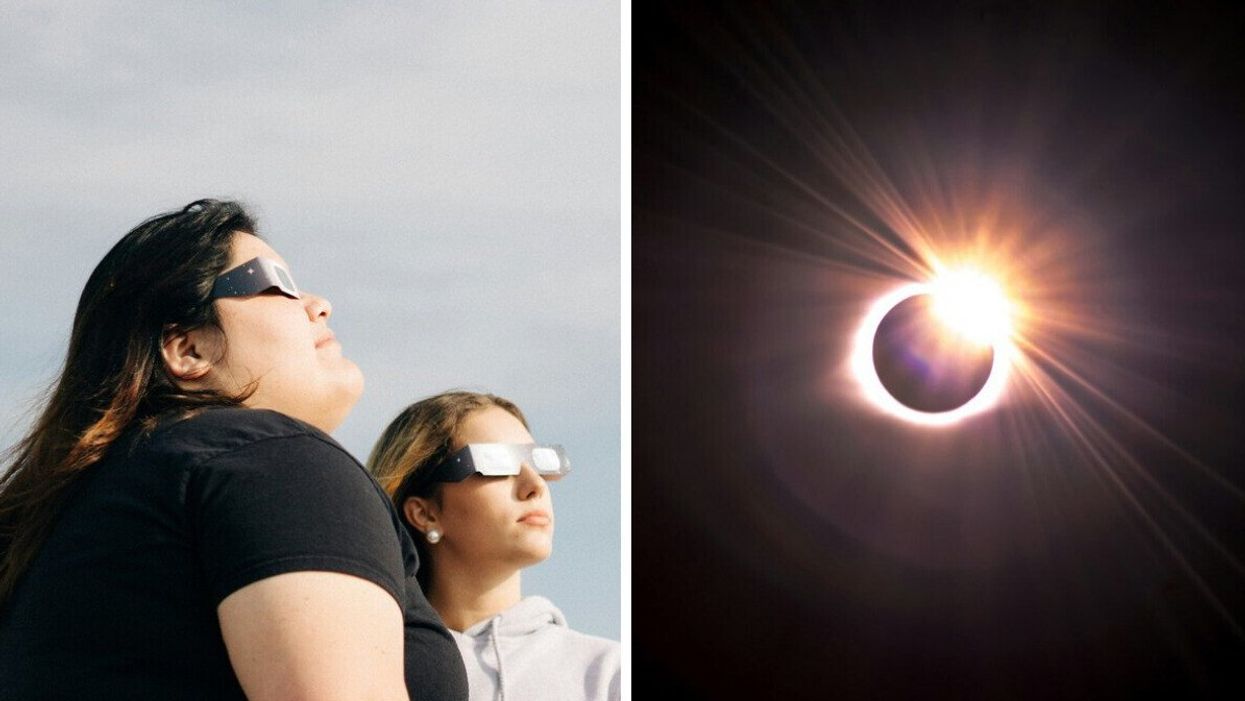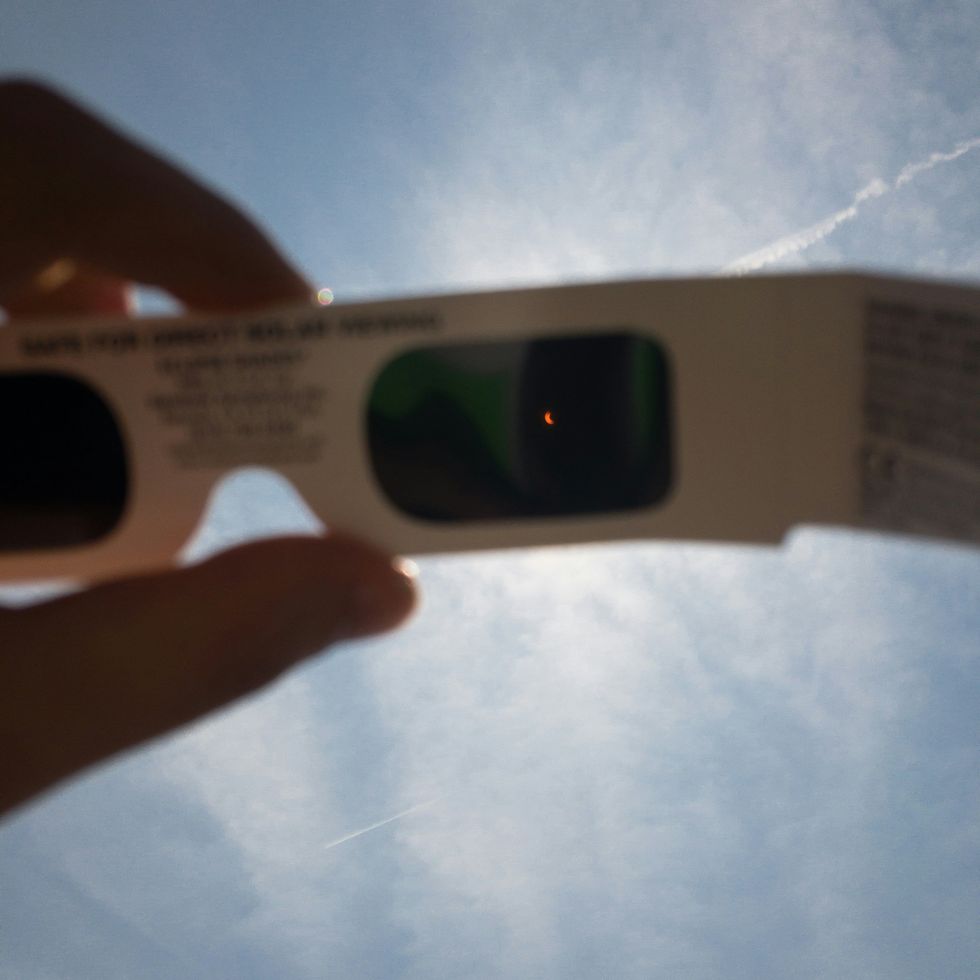The Total Solar Eclipse Has Some Canadians Rethinking Outdoor Plans & Here's What To Know
Viewing the eclipse unsafely poses certain risks.

People look to the sky while wearing eclipse glasses. Right: A solar eclipse.
Canada will be treated to a total solar eclipse in 2024, a spectacular and rare celestial event that will take place this spring.
However, some are raising concerns over safety during the event due to the danger that exists with unsafe viewing practices of the eclipse.
With some rescheduling outdoor activities, here's what to know about safely viewing the solar eclipse in Canada.
The solar eclipse will take place on April 8, 2024, though not everyone will see a total solar eclipse.
According to the Canadian Space Agency, in Canada, the solar eclipse's path of totality will pass through certain cities and towns in Ontario, Quebec, New Brunswick, Nova Scotia, Prince Edward Island and Newfoundland, plunging them into darkness for a few minutes.
Those outside of the path of totality, including Toronto, will still be able to observe a partial solar eclipse, during which the sun is not hidden in totality.
Ahead of the eclipse, some Ontario school boards are rescheduling professional activity (PA) days due to safety concerns.
In Hamilton, for example, the total solar eclipse is set to take place at 3:18 p.m. ET, right around the time school would be normally dismissed.
The timing has prompted the Hamilton-Wentworth District School Board to move a PA day originally scheduled for March 1 to April 8 in order to keep children at home during the eclipse.
"These events can pose potential risks and severe damage to eyesight if proper precautions are not taken," the school board said in notice on its website. "Viewing the sun directly during an eclipse can permanently damage the retina’s light-sensitive cells."
The Halton District School Board also rescheduled a PA day to April 8 due to the solar eclipse, according to the board's website, while the Toronto District School Board has approved a recommendation from staff to move a scheduled PA day to April 8 "out of an abundance of caution," according to a CP24 report.
Safety risks during total solar eclipse
Eye damage is a real risk during the eclipse. According to the Canadian Association of Optometrists, the danger comes from the fact that even during a partial eclipse, the sun's intense radiation can cause severe damage to the eyes.
If you're planning on viewing the eclipse, the CAO says that you'll want to ensure your eyes are protected by using approved solar eclipse viewers that meet international standard ISO 12312-2 for safe eclipse viewing.

"Make sure that the glasses are not damaged or scratched before use. Sunglasses, even those with a very dark tint are not sufficient protection," says the CAO.
Those in the path of totality can remove eye protection during the few minutes that the sun will appear to be totally covered by the moon, but eye protection is essential before and after totality, according to the Canadian Space Agency.
While solar eclipse glasses are the only way to safely look directly at the eclipse, you can also view the eclipse indirectly by using an eclipse projector, which is easy to make.
Cities across Canada in the path of totality will also be plunged into darkness for a few minutes as the moon aligns perfectly between the Earth and the sun — according to NASA, the sky will become dark, as if it were dawn or dusk, which could pose hazards for driving and traffic.
The eclipse could be a once-in-a-lifetime event for some — according to the CSA, Quebec hasn't witnessed a total solar eclipse in over 50 years (1972), and it will be over 80 years before the next one (2106), so you won't want to miss your chance to see it!
This article's cover image was used for illustrative purposes only.